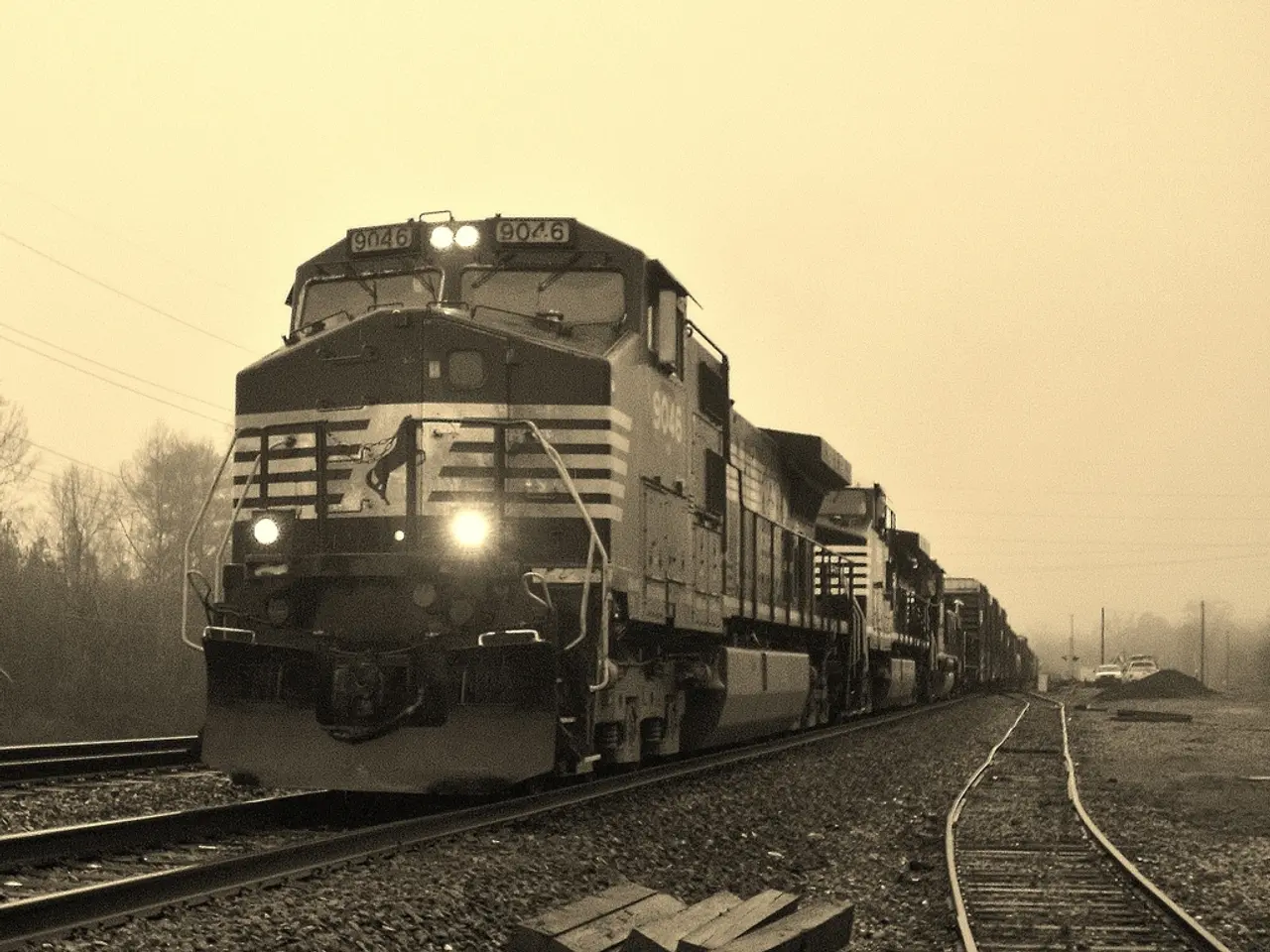Germany initiates its most extensive railway modernization endeavor - Large-scale railway refurbishment initiative commences in Germany
The Hamburg-Berlin railway line, one of Germany's busiest routes, is currently undergoing a comprehensive upgrade, marking the largest rail rehabilitation project in the country. The renovation began in 2024 and is expected to continue until 2036 [2].
The extensive work includes the renewal of 165 kilometres of track and nearly 250 switches, the replacement of six signal boxes, and the renovation of 19 existing ones [1]. However, the installation of the European Train Control System (ETCS), a crucial step towards digital and safer train control, has been postponed until the next decade [2].
The complete closure of the line is scheduled to start on August 1, 2025, for at least nine months. During this period, ICE and IC trains will run only once an hour instead of every 30 minutes as before, adding an average of 45 minutes to the travel time between Berlin and Hamburg [1]. Freight traffic will also be widely detoured.
Affected commuters can switch to replacement bus services during the renovation. Regional traffic should still run as usual until the evening before the closure [1]. The renovation of the area network, not just the main lines, is also a priority, according to Parliamentary State Secretary Ulrich Lange [1].
Philipp Nagl, CEO of InfraGo, described the project as a "real tour de force" [1]. The replacement traffic has already started on early Friday mornings. No concrete date for the installation of ETCS has been announced [2].
The project forms part of a general modernization effort across Germany's aging rail infrastructure, aiming to improve reliability and capacity after decades of underinvestment [2]. The new high-speed line from Hamburg to Hanover, a separate future project, is estimated to cost €6.7 billion for about 110 km [1].
The EU has allocated approximately €16.7 million for ETCS upgrades on the Berlin–Hamburg line as part of a broader €2.8 billion EU investment in railway infrastructure projects [3]. However, the total cost for this renovation and signaling upgrade has not been provided in the available sources [2]. Deutsche Bahn, the national rail operator, reported a €760 million loss in H1 2025, partly due to infrastructure investments [2].
In summary, the Hamburg-Berlin railway renovation is a significant undertaking, focusing on extensive track and infrastructure renewal, but the crucial ETCS digital train control implementation on this line is postponed into the next decade. The project is partially supported by EU funds, signaling a move towards modernized, digital rail traffic management, but specific total cost figures and final ETCS installation timelines remain to be confirmed [2][3].
- In light of the Hamburg-Berlin railway line's renovation, it might be beneficial for the community to consider a temporary community aid program that supports commuters affected by the travel time increase, particularly those who rely on public transportation for work or daily essentials.
- Simultaneously, the development of the fisheries sector in the regional communities along the railway route could receive aid, as the detouring of freight traffic might present opportunities for local industries and businesses, contributing to the economic growth of the communities during the construction period.




